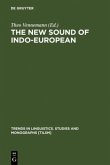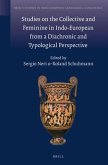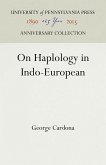In linguistics, the term ablaut designates a system of vowel gradation (i.e. regular vowel variations) in Proto-Indo-European (PIE) and its far-reaching consequences in all of the modern Indo-European languages. (For the general phenomenon, see Apophony.) An example of ablaut in English is the strong verb sing, sang, sung and its related noun song. The term ablaut (from German ab- in the sense "down, reducing" + Laut "sound") was coined in the early 19th century by the linguist Jacob Grimm, though the phenomenon was first described a century earlier by the Dutch linguist Lambert ten Kate in his book Gemeenschap tussen de Gottische spraeke en de Nederduytsche ("Commonality between the Gothic language and Dutch", 1710).








